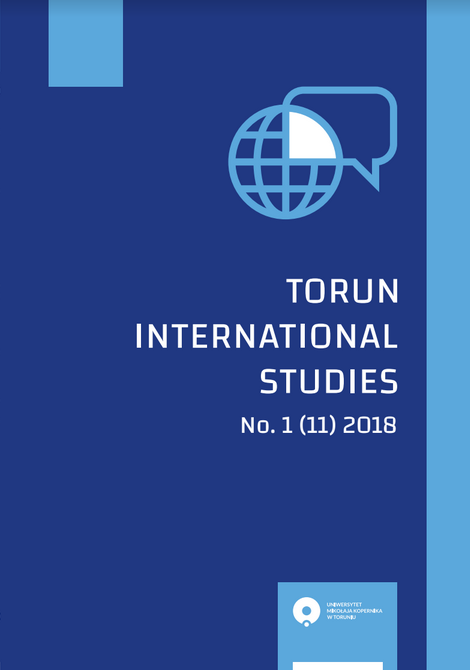THE PROPOSAL SYSTEM OF SUPPORTING ECONOMIC EFFECTS FOR INTRODUCING NEW EDIBLE OILS TO THE LIBYAN MARKET
DOI:
https://doi.org/10.12775/TIS.2018.010Keywords
plant oils, oil blending mixtures, physicochemical properties of oils and their blends, production of special application blends, SMO systemAbstract
There are two food production processes that involve the replacement of one ingredient with other substance or a mixture of two or more products. One of them is adulteration of food products. This applies to high-cost and high-quality oils e.g. olive oil that is frequently subject to adulteration with other edible oils of lower value. Such a food fraud affects the quality of the gentle oil and the foods the ingredient of which is olive oil. The second action often applied to the oils is blending of the variety of products originating from many different regions and countries. Sometimes the oils originating from various sources and years are blended to create a consistent taste.
The subject of this paper is the application of the multi-analysis method to assess the process of the blending of several oils and thus creating a new mixture to satisfy the market demand for new hitherto unknown oils, advertised as new products. For this task we construct a new system under the label of Special Modification Oil-SMO. The system consists of three parts: 1. Theoretical part, 2. Practical part; that is, an experimental part 3. The last part is the economic justification to fulfill market demand by launching new oils of high quality serving many purposes and at the same time being cheaper. Therefore, in this paper we mainly focus on the practical aspect of the issue; however, the economic justificatory criteria are of equal importance. Economics starts to be relevant once we start considering the possibility of producing the oils in question. The proposed SMO system has been used in these calculations to obtain the required composition of the blend destined for special application. The present work shows that the chemical parameters of the final mixture can be numerically calculated when the characteristics of primary components are known. The SMO procedure can constitute input data for theoretical evaluations. The SMO procedure computes the best mixtures for the new oil demanded by the market. According to the SMO’s formula, also the economic factors of a given undertaking are taken into account (that is, such technological factors as costs of different mixtures). The verification of experience finishes when certain economic ends are achieved.
References
Ba yasir Oil co. Ltd, Certificate of the laboratory tests, Khartoum Sudan 2017.
Khlafalla-Omar, M. (1980). Time analysis in PERT, a guide book of reference for the students. Wrocław: Technical University.
Khlafalla-Omar, M. (2012). Wide Investigation of Computerized FAM System for a Scientific Empirical Application. Wrocław.
Noga, M. (1994). Państwo i inwestycje w gospodarce rynkowej z uwzględnieniem procesu transformacji. Wrocław: Dolnośląska Oficyna Wydawnicza.
Noga, M. (2000). Makroekonomia. Wrocław: Akademia Ekonomiczna.
Pilawski, B. (1984). Komputer narzędziem pracy organizatora. Warszawa: PWE.
Pilawski, B. (1990). Niektóre praktyczne aspekty oceny wielokryterialnej - rozważania na tle wybranych rozpraw habilitacyjnych. Wrocław: Wydawnictwo Politechniki Wrocławskiej.
Radosiński, E. (1993). Sztuczna inteligencja w analizie przedsiębiorstwa - analityczne systemy ekspertowe. Wrocław: Polskie Towarzystwo Symulacyjne.
Radosiński, E. (2013). Systemy informatyczne w dynamicznej analizie decyzyjnej. Warszawa: Wydawnictwo Naukowe PWN.
Siedlecka, U. (1996). Prognozowanie ostrzegawcze w gospodarce. Warszawa: PWN.
Surman-Kasem, Y.P. Ozaki Du.Y. (2004). The detection and quantification of adulteration in olive oil by near infrared spectroscopy and chemometrics. Analytical Science, 20, 935-940.
Dziuba, Sz.T., Khlafalla-Omar, M. (2015). The Use of Fail Assessment Method in the formation of quality parameters of wheat flour. Wrocław.
Szołtysek, K., Khlafalla-Omar, M., & Dziuba, Sz. (2006). Wykorzystanie metody FAM do badania i oceny mieszanek mąk w systemie FMC-FAM. Przegląd Zbożowo-Młynarski, 12, 27-29.
Downloads
Published
How to Cite
Issue
Section
Stats
Number of views and downloads: 483
Number of citations: 0



